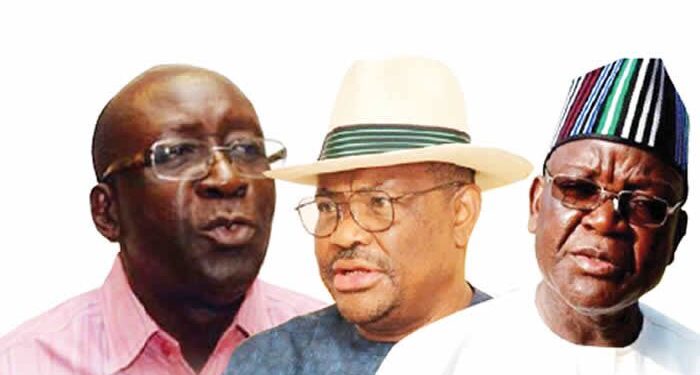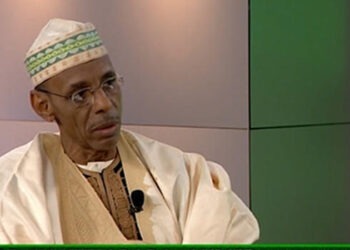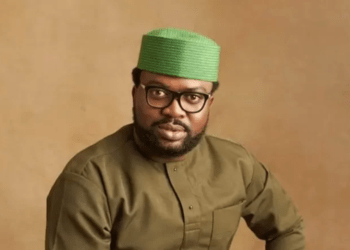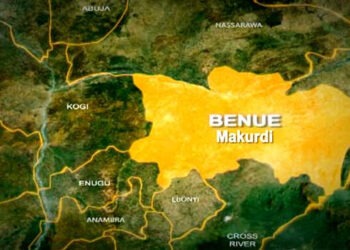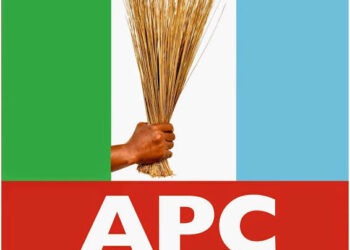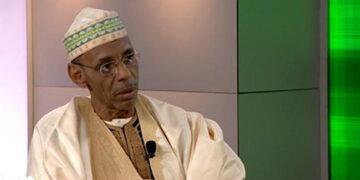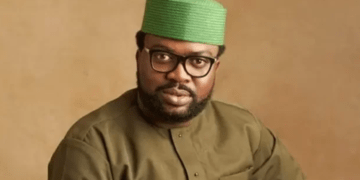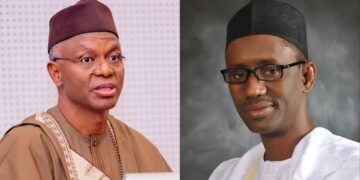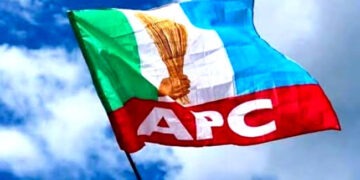The defections affecting the primary opposition party, the Peoples Democratic Party (PDP), in recent times have been particularly notable in its former strongholds – the South-South and South-East regions. This period is undoubtedly challenging for the party that governed the country for 16 years following the advent of democracy in 1999. Of particular concern is the perceived absence of innovative solutions and determination to address the numerous issues jeopardizing the core of the party.
The party is currently grappling with various problems that pose a threat to its very existence, jeopardizing its status as the largest political party in Africa, a source of pride for its members.
Since the party abandoned its zoning formula in the lead-up to the 2023 presidential election, an election it ultimately lost, discord has persisted within its ranks. Contentions over control of party structures, defections, overt and covert anti-party activities, non-compliance with the party’s zoning formula, and the failure of national leadership to enforce discipline among members have all contributed to the current deadlock within the party.
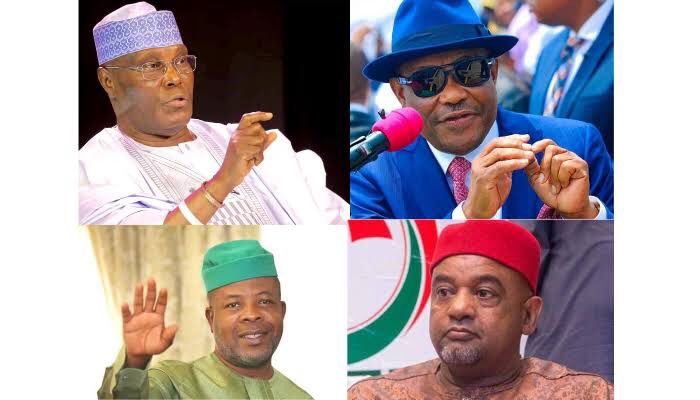
The party’s strength to participate and emerge victorious in future elections is now under scrutiny due to widespread defections spanning Imo, Rivers, Abia, Edo, and most recently, Katsina State, where former governor Ibrahim Shema defected to the ruling All Progressives Congress (APC). Segun Sowunmi, a party chieftain from Ogun State aspiring to lead the party, acknowledged the disconcerting nature of these defections but expressed confidence in the party’s ability to overcome these challenges.
The aftermath of the 2023 general elections, which divided loyalties within the party between its presidential candidate Atiku Abubakar, and the current Minister of the Federal Capital Territory (FCT) Nyesom Wike, significantly contributed to the present state of affairs. The recent upheavals within the party, stemming from the refusal of acting national chairman Ambassador Umar Damagum and national secretary Senator Samuel Anyanwu to step down from their positions against the wishes of certain party stakeholders, were fueled by the impasse between Atiku and Wike, each vying for control of the party’s structure. Although many stakeholders anticipated the resolution of these issues at the recent National Executive Committee (NEC) meeting, the meeting’s inconclusive outcome left many disillusioned, prompting several to pursue their political aspirations in other parties.
Among the prominent figures who have exited the party are former Imo State governor and ex-deputy speaker of the House of Representatives Emeka Ihedioha, along with over 25 other party chieftains and their supporters in Imo State.
Apart from Ihedioha, other notable departures from the party include a former member of the House of Representatives, a member of the Board of Trustees (BoT), and several other party chieftains. Previously, the party in Imo State was divided between Emeka Ihedioha, who has since left the party, and national secretary Senator Samuel Anyanwu.
In Rivers State, the ongoing political standoff between Governor Siminalayi Fubara and FCT Minister Wike has left the party in a precarious state.
Earlier, 27 members of the Rivers State House of Assembly aligned with Wike defected to the APC, with the PDP and the state governor asserting that they no longer hold legislative positions due to their defection. Numerous PDP stakeholders in Rivers have joined the FCT minister in supporting the APC administration of President Bola Tinubu, although they have yet to formally declare their defection from the party.
The situation in Edo State is even more critical with the upcoming governorship election later this year. The process that led to the emergence of the party’s gubernatorial candidate, Asue Ighodalo, has left many aspiring candidates dissatisfied.
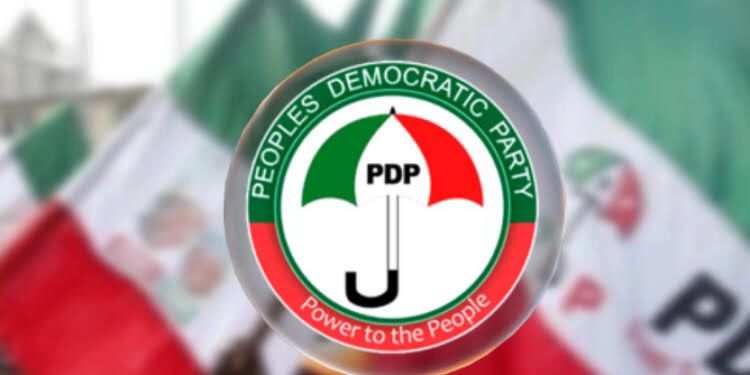
Former deputy governor Philip Shaibu, who was recently impeached by the State House of Assembly, is reportedly aligning with the APC in the state. Governor Godwin Obaseki is facing challenges in garnering support for the party’s candidate, with the Legacy Group under the leadership of PDP South-South vice chairman Dan Orbih clashing with the governor’s faction.
Orbih, leader of the Legacy Group and a close ally of Wike, played a pivotal role in securing Obaseki’s candidacy through Wike’s influence when the APC and Adams Oshiomhole denied him a second term ticket. However, relations have since soured, with political leaders at odds. Given Wike’s collaboration with the APC at the federal level and Orbih’s rejection of his nomination to Asue Ighodalo’s campaign council, conditions may be ripe for a significant coalition against the PDP and Obaseki.
The situation in many states poses a grave challenge to the PDP, with analysts warning that without prompt action, the party’s prospects could deteriorate further. Addressing the party’s state, NEC member Tim Osadolor accused the APC of scheming to establish a single-party state in Nigeria, an accusation the ruling party has vehemently denied.
He further alleged that the deliberate policies of the Bola Tinubu-led federal government, aimed at generating poverty, have exacerbated the plight of ordinary Nigerians, rendering life unbearable for many. Osadolor emphasized that several opposition politicians are grappling with hunger, fatigue, and hardship, believing that joining the APC could alleviate their suffering.
As the national deputy youth leader of the PDP, Osadolor defended the efforts of the Damagun-led NWC, attributing the defections to a calculated attempt by defectors to portray leadership failure.
Sowunmi echoed concerns regarding the defections, emphasizing the imperative for the PDP to reinvent itself and enhance its internal conflict management mechanisms.
He maintained that the party has the capacity to overcome these challenges.
While acknowledging the prevailing circumstances, Sowunmi underscored the urgency for the party to address the perception of external interference in its governance at both the national and state levels.
He asserted, “While the ruling party enjoys government support and other advantages to retain its members, an opposition party may not be as fortunate. However, this does not preclude the party from organizing itself to secure victory in future elections. Even those currently in power spent 16 years in opposition.”The developments in Imo, Abia, and other states are concerning, and party leaders must take decisive action to prevent disillusionment among their followers and members, averting further defections.”
By: Nwakaji Peace Martins


